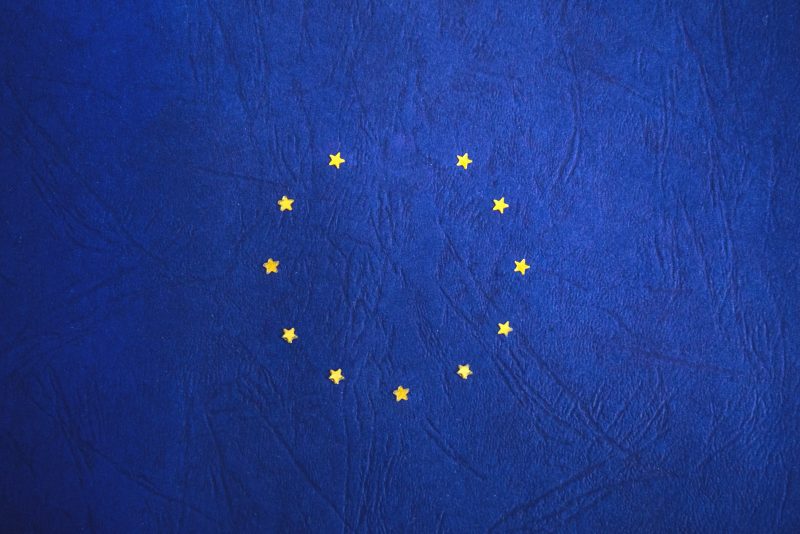“We are leaving the European Union, but we are not leaving Europe.” These were the words of Theresa May in her Brexit speech this week. Where does this leave the three million EU citizens who have come to this country in good faith and now find themselves at the centre of a political battle? On one hand, the Government has expressed its intention that EU citizens would be allowed to remain after Brexit; on the other, it has so far refused to offer them any guarantees. Instead they’ve been called negotiating capital or bargaining chips. This is a dark place to be for milllions of people and it is somehow shaming a country which honours itself on the principles of fairplay and tactfulness.
When I created the civil rights organisation the3million back in July 2016, most Europeans I was speaking to were mourning a way of life which had hitherto defined them. The idea that you could be born in one member state, study in another and work across borders didn’t feel particularly political. Those who ended settling in the UK did it for different reasons but they all shared admiration for a country where freedom and tolerance were predominant in equal measure.
This illusion was broken on June 23rd. . The rise in hate crimes provided a narrative which seems to belong to another era. Attitudes towards migration had turned hostile to the point that fully integrated EU citizens who had been living in this country for a long time were told to go home in no uncertain term. And the same happened to their British-born children in the playgrounds.
This could have been averted easily if the Government hadn’t developed an ambiguous message which was seized by the xenophobic elements of society as a blank cheque for letting go. For example, the Prime Minister could have told EU citizens on the day of the result that they were welcome as valued members of society and unilaterally granted their rights to remain after Brexit.
What happened next is inspiring. EU citizens started to organise themselves – not around their usual national communities but embracing their EU citizenship under the umbrella of the3million. Solidarity developed as people looked to secure their future by applying for a Permanent Residence (PR) card or even citizenship.
The current Kafkaesque Home Office system is not fit for purpose to register three million people within the tight timeframes of Brexit. The system is broken and it needs to be fixed for the sake of respecting the lives of 3 million people who are the partners, relatives, friends and colleagues of British citizens.
This is what the3million is asking to remedy this depressing situtation:
1. The Prime Minister and her Government must show leadership and stop using EU citizens as a human shield in the forthcoming Brexit negotiations.
Not only does this stance create a highly negative backdrop to the start of the negotiations with Michel Barnier and his team of EU negotiators but there is also very little political gains to be made when 84% of the British population say that EU citizens can stay after Brexit (ICM survey 03/07/2016). Unless the government feels that mass deportation is an option in case the negotiations don’t succeed, this is only an empty threat – but with a real, damaging impact on the three million EU citizens.
In addition, most organisations of British citizens in Europe have also called for the PM to stop treating EU citizens as bargaining chips, since they don’t want to be bargaining chips themselves. So the first priority of this Government should be to unilaterally grant EU citizens the right to remain after Brexit.
2. The Government needs to establish a fair system to register all three million EU citizens who currently live here. Nobody should be excluded because of the inadequacy of a system put in place by the Home Office under different circumstances.
3. The Government must consider the future status of those EU citizens who have arrived in good faith and offer them legal protection to replicate their current protected status. This could be done through a fast track and affordable process to citizenship (followed by detailed negotiations to allow dual nationality for all EU citizens), similar to what was offered to Commonwealth citizens who came to the UK in the 50s and 60. And the Government ought to create a new bespoke status for those who will not be able to access citizenship but who will require the same protection.
Here we are now, with article 50 looming on the horizon and no more certainty over our future than when we woke up that morning after the referendum. The idea that somehow, we might have to make preparation to leave by the time the UK leaves the EU is a fear which exists in all of us. I’ve heard people who are fearful of being divided from their children after Brexit, or pensioners who are worried that they will need to go back to a country they haven’t lived in for over fifty years. Whether irrational or justified, these fears are all based on one simple fact: no guarantee has been given to any EU citizen who lives in the UK.
I am an optimist. I believe that the future could be safe for all EU citizens who currently live in the UK; but only if a majority of Britons agree with us and press on the Government to share our vision of a society willing to treat its three million EU citizens with fairness and compassion.
Nicolas Hatton is the founding co-chair of the3million, a civil rights organisation defending the rights of residence of EU citizens. The3million is organising a mass lobby in Westminster on 20 February calling on the Government to unilaterally grant EU citizens living in the UK the right to remain after Brexit.





